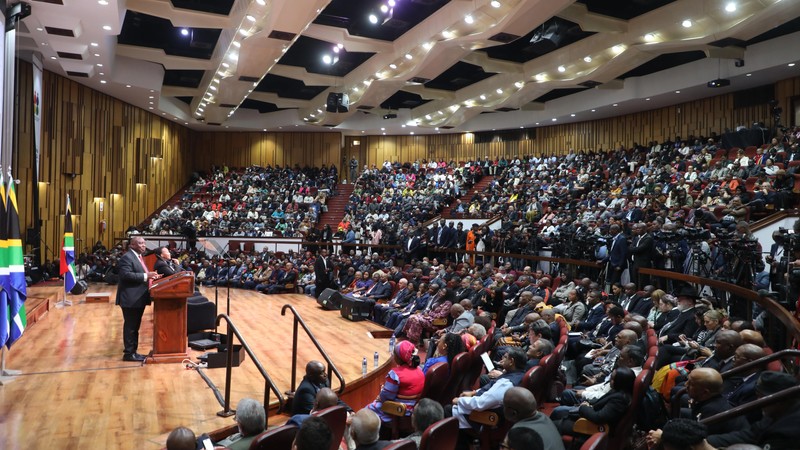Civic groups challenge government control in National Dialogue discussions
Abahlali Basemjondolo has vowed to utilise the National Dialogue to disrupt the country’s status quo, which suppresses the voices of the people on the ground.
The group’s general secretary, Thapelo Mohapi, said the group would ensure that the government does not have an upper hand in conducting the dialogue across the country.
The civic society, which lobbies for the better lives of informal settlement dwellers, participated in the two-day National Convention at the University of South Africa (Unisa) on Friday and Saturday.
The convention was to draft a roadmap for the discussions to find a way of dealing with the country’s challenges.
The last day of the convention on Saturday at Unisa’s ZK Matthews Hall was expected to give direction on how the dialogues would be convened in all spheres of society.
Like many groups of society, Abahlali was concerned that under the government’s control, the dialogue would become another talk-shop.
“We are here to disrupt the status quo because we want this dialogue to be for the people by the people,” said Mahapi, who participated in a plenary session that dealt with crime and corruption.
Mohapi was concerned that if the dialogue was controlled by the government, it would end up being like various commissions of inquiries whose recommendations ended up gathering dust without implementation.
He said the people who are poor and marginalised used various platforms to express their views, but the government never recognised them.
“This dialogue must be rooted in the ground, it must be people-led,” he said.
Abahlali would take the agenda crafted by the plenary sessions to its constituents for scrutiny.
He said he wanted the dialogue that is going to deal with the informal settlement dwellers who are constantly victims of shack fires and floods.
“We are saying these are the issues of the people,” said Mohapi.
Independent political analyst Dr Imraan Buccus was concerned that the dialogue was constructed as an elite project “that takes into account organisations and individuals that don’t necessarily speak on behalf of the masses of the people”.
He agreed with the growing consensus that serious questions need to be asked about whether we need a dialogue at all.
“There’s ample research and other participatory processes that tell us what we already need to know,” Buccus said.
He was also concerned about the money spent on conducting the dialogue.
“The R700m being used for the dialogue would be better utilised to address the deficit we already know about,” he said.
Sinesipho Soxujwa, who represented the Unemployed People’s Movement at the opening of the dialogue, said on Saturday that people on the street were expecting the dialogue to come up with a resolution to promote local businesses to create job opportunities.
“We must oblige the private sector to invest in the communities instead of extracting from them and not giving back. We must ensure a living wage to uplift people trapped in poverty,” said Soxujwa.
Soxujwa briefly stole the limelight when she called for the dialogue not to be a polite conversation that would avoid the truth.
“We want this dialogue to tackle the issues that we deal with daily. We want it to go on a route of the unemployment issues, and we have talked and talked and came to the conclusion that the dialogue should reject neoliberalism and build an economy that is going to serve the people first.
“And also defend water, electricity, transport, and houses as rights and not commodities,” she said.
University of KwaZulu-Natal-based political analyst Zakhele Ndlovu said the dialogue should consider changing the electoral system to one that enables voters to hold public representatives, such as members of Parliament and councillors, accountable.
“Our electoral system is the biggest problem because public representatives are accountable to political parties, who deploy them and not the voters.”
Although questioning the necessity of the dialogue, Ndlovu hoped that the issue of the electoral system would be discussed because it is a fundamental issue.
“We voted for the people to do the job, which they don’t do. As a result, we now have the National Dialogue.
“How do you justify the cost of R700 million? This thing is like the commissions that do not help because if you look at the Zondo Commission, over R1 billion was spent, but no one has been prosecuted,” said Ndlovu.
National Dialogue spokesperson Rev Zwoitwaho Nevhutalu told the SAFM listeners on Saturday morning that the dialogue was meant to unite the voices of the citizens.
“Let us pull all these into a common objective to shape the destiny of our country and ourselves, and of the future generations,” he said.
bongani.hans@inl.co.za

